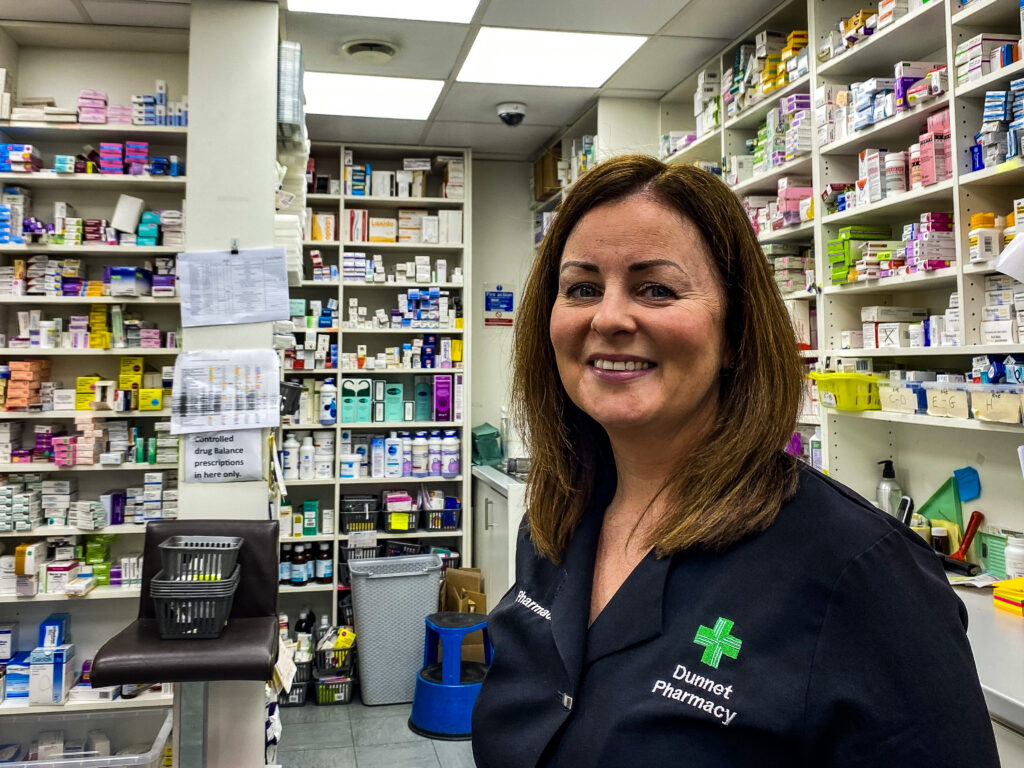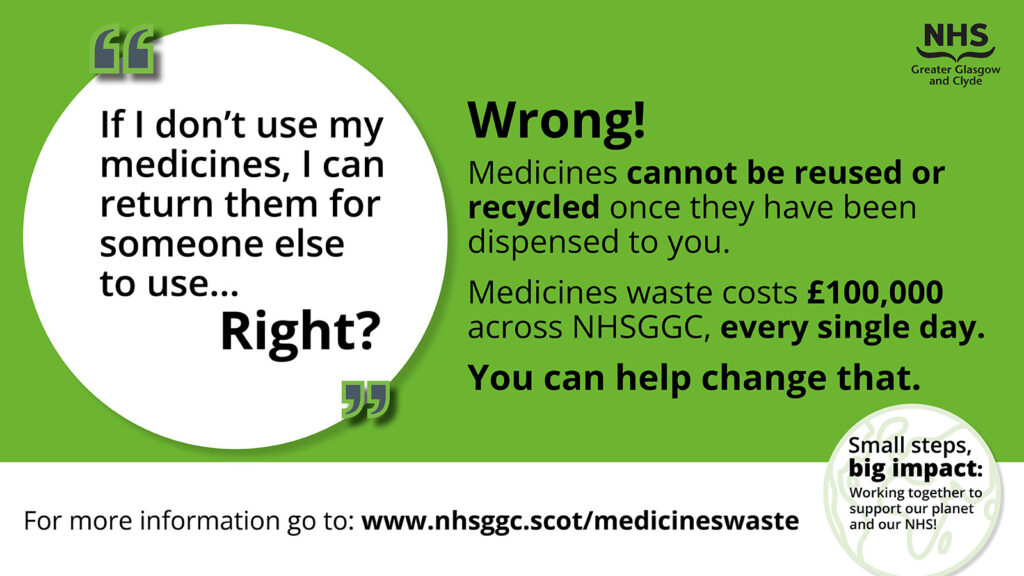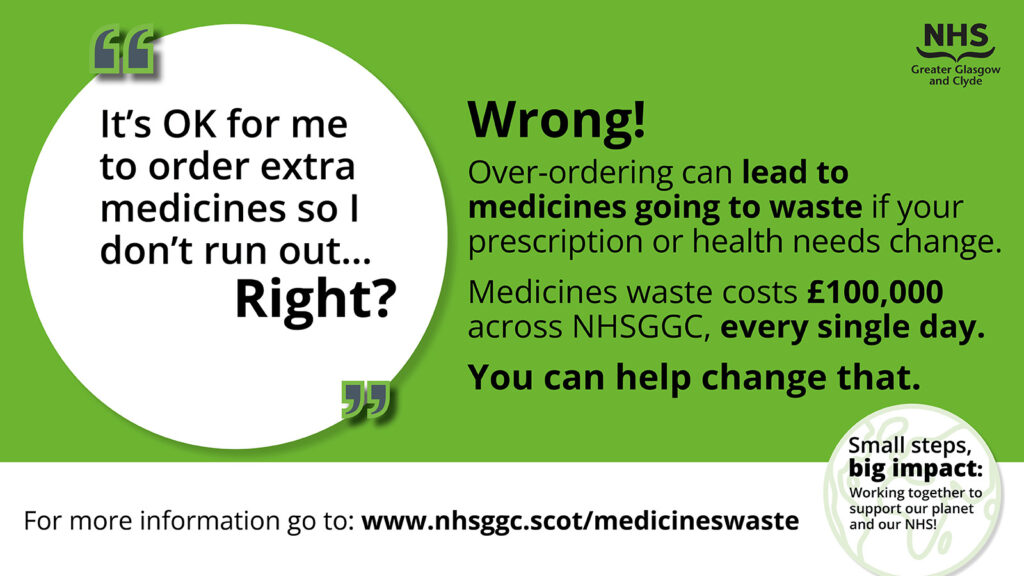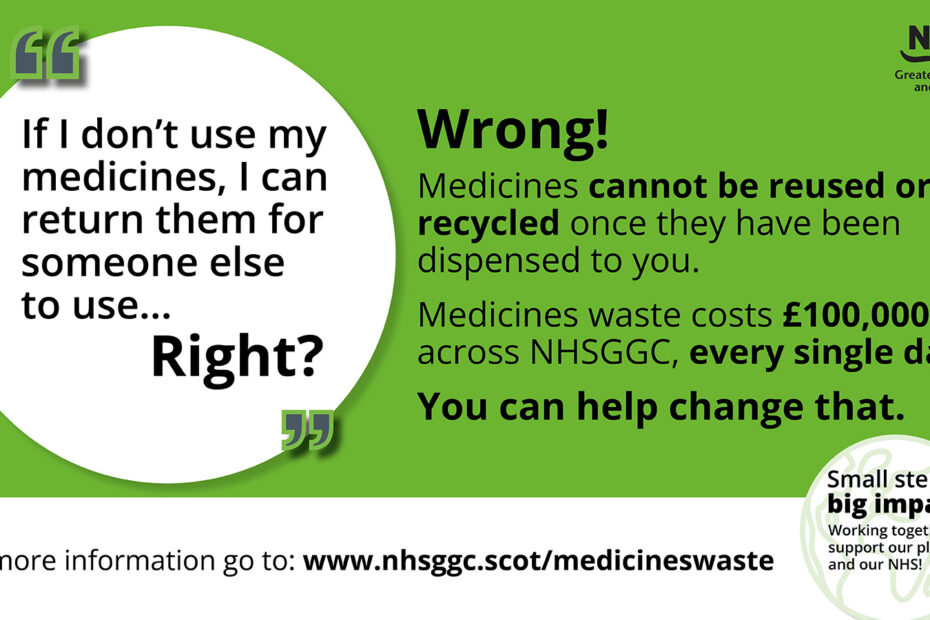
NHS Greater Glasgow and Clyde has launched a campaign to reduce medicines waste – for the good of people’s health, to support NHS services and to help the environment.
Every day, NHS Greater Glasgow and Clyde (NHSGGC) dispenses around 100,000 medicines in the community – and at an average cost of nearly £11, that’s more than £1 million every single day.
However, latest figures show that around 10% of medicines are thrown away*, either because they’re not needed or haven’t been taken.
A total of more than £100,000 every day, thrown away.
That’s the equivalent of a day’s wages for more than 700 nurses, or more than 200 hospital consultants.
Every single day.
And at a time when NHS finances are under significant pressure, NHSGGC is asking for help from patients, the public, and from medical professionals to support efforts to reduce the levels of waste.
The Medicines Waste Campaigncalls for three simple actions:
- Resist the urge to over-order medicines: Check what medicines you have at home before you re-order, and only order what you really need when you need it.
- Take control of your medication: Contact your GP practice team, pharmacy team or nurse about reviewing your medication to make sure they are still right for you.
- Know how to dispose of unused medicines: If you have medicines at home that are out of date or no longer required, return them to your local pharmacy for safe disposal.

Gail Caldwell, Director of Pharmacy at NHSGGC, said reducing medicines waste was everybody’s business – for the good of our health, our environment, and our NHS.
She said: “Medicines are precious, and to help reduce waste we always urge people to ask only for the medicines they need in a quantity they can use.
“That’s the message at the very heart of our campaign, that by following our simple suggestions, a few small steps by us can have a big impact.”
In the recent survey carried out by NHSGGC, more than one-third of people (34%) said they always, often or sometimes kept a greater supply of medicines than they needed at home, while 41% also said they always, often or sometimes ordered a resupply before the due date.
Gail Caldwell added: “It’s natural for people to want to request an extra packet of medicine for their elderly mother, or to order one more inhaler for their child in the run-up to a holiday, but we would encourage everyone to think twice about stockpiling medicines or ordering them before they need them.
“Huge amounts of medicine need to be thrown away either because they’re not needed or haven’t been taken, and by resisting the urge to over-order, or to order earlier than you need, people would make an important contribution to supporting the NHS, to the environment and ultimately to the wider health of the population in NHS Greater Glasgow and Clyde.”

Ms Caldwell said she was aware that concerns sometimes emerge about medicine shortages, but she said any supply issues are generally short-lived and a GP or pharmacist will be able to source appropriate alternatives.
“Being organised and doing your bit by ordering only what you need, when you need it, will usually ensure you have adequate supply of medicine,” she said.
If people need medicines regularly, repeat or serial prescription can be useful in the right circumstances to make access to medicines as easy as possible. However, they can come with a downside.
How often do people reorder their prescriptions or pick up their medicines, regular as clockwork, without really thinking whether they still need what they receive – or whether they even use it?
NHSGGC’s Deputy Medical Director for Primary Care Dr Kerri Neylon, who is also a GP in Glasgow, said: “Repeat and serial prescriptions are a hugely valuable way for patients to get the medicines they need.
“They reduce the number of GP appointments or the amount of pharmacists’ time needed just to get a prescription – time which would be better used helping new patients or giving advice.
“So no wonder people who regularly need the same medicine are encouraged to use repeat prescriptions.
“However, to make sure you are getting the best out of your medicines it is important they are periodically reviewed. Speak to your GP practice team or community pharmacist if you think you need a medication review.”
For more information on the Medicines Waste Campaign and medicines reviews, go to the NHSGGC website: Medicines Waste – NHSGGC.
To find out more about NHSGGC’s sustainability goals and its commitment to net zero, go to: Sustainability – NHSGGC
* NHS England National Overprescribing Review Report, September 2021

